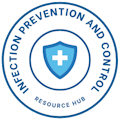
Antibiotic Stewardship
When Do You Need an Antibiotic?
Antibiotic drugs are strong medicine that can save lives when used appropriately to treat bacterial infections. Overuse of antibiotics can cause problems for individuals and for the health of the community. It is important for us all that these powerful drugs are used only when they can help, so they will work when we really need them.
Overusing Antibiotics Can Cause Problems
How can antibiotics hurt you?
Antibiotic drugs can save lives but using antibiotics can cause problems too. Older people have more side effects from medicines, which can cause problems all over the body.
Antibiotics can, in some cases:
- Cause nausea and vomiting.
- Cause diarrhea, including the kind due to C. difficile, an infection that can lead to severe symptoms.
- Cause rash or other allergic reactions.
- Harm your kidneys or other organs.
- Create bacteria that are resistant to antibiotics.
What is "antibiotic resistance"?
Antibiotics normally work by killing germs called bacteria. Sometimes not all of the germs are killed. The strongest ones are left to grow and spread. A person can get sick again, and this time the germs are harder to kill because the antibiotics no longer work. This is called resistance and makes some infections very hard to control.
Resistance can make you sick longer and need more health care provider visits and drugs that are even stronger. The more often you use an antibiotic, the greater the chance that the germs will become resistant.
When aren't antibiotics needed?
Antibiotics can help the body fight bacterial infections, but they are not miracle drugs for everything.
They are not helpful when:
- You have an infection that is caused by a virus (like a cold or the flu).
- You don't have an infection but instead have some other medical problem (such as anemia).
- Bacteria are found in a urine culture from a specimen you gave, but you do not have symptoms of infection. It is normal for many older people without symptoms of a urinary tract infection to have bacteria in their urine, especially in long term care.
Why would a doctor give antibiotics when they aren't needed?
- Doctors are not always sure what is causing an illness. They may worry they have to provide treatment right away.
- Some patients and families think they aren't getting good care if they don't get an antibiotic and so they request or insist that their doctor prescribe one.
What should you do?
- Talk with your doctor or medical provider about the benefits and risks of antibiotics.
- Take medicine exactly the way it's prescribed.
- Take care of yourself: Get rest, eat, and drink enough.
- When you are on hospice or thinking about hospice, talk with your health care provider about whether you need antibiotics anymore.
What shouldn't you do?
- Don't request an antibiotic when the doctor or medical provider says it isn't needed.
- Don't take an antibiotic for a virus (cold or flu).